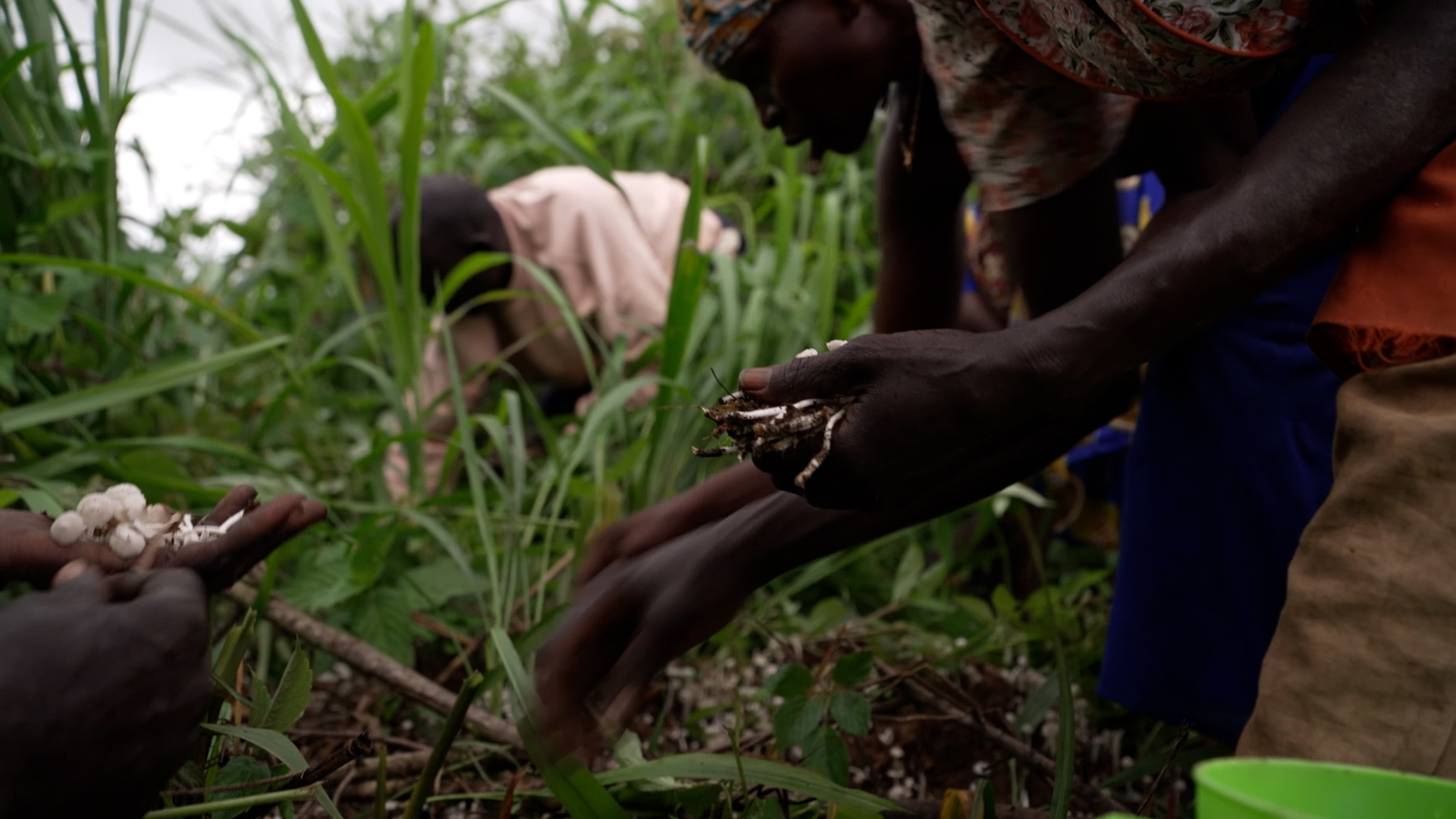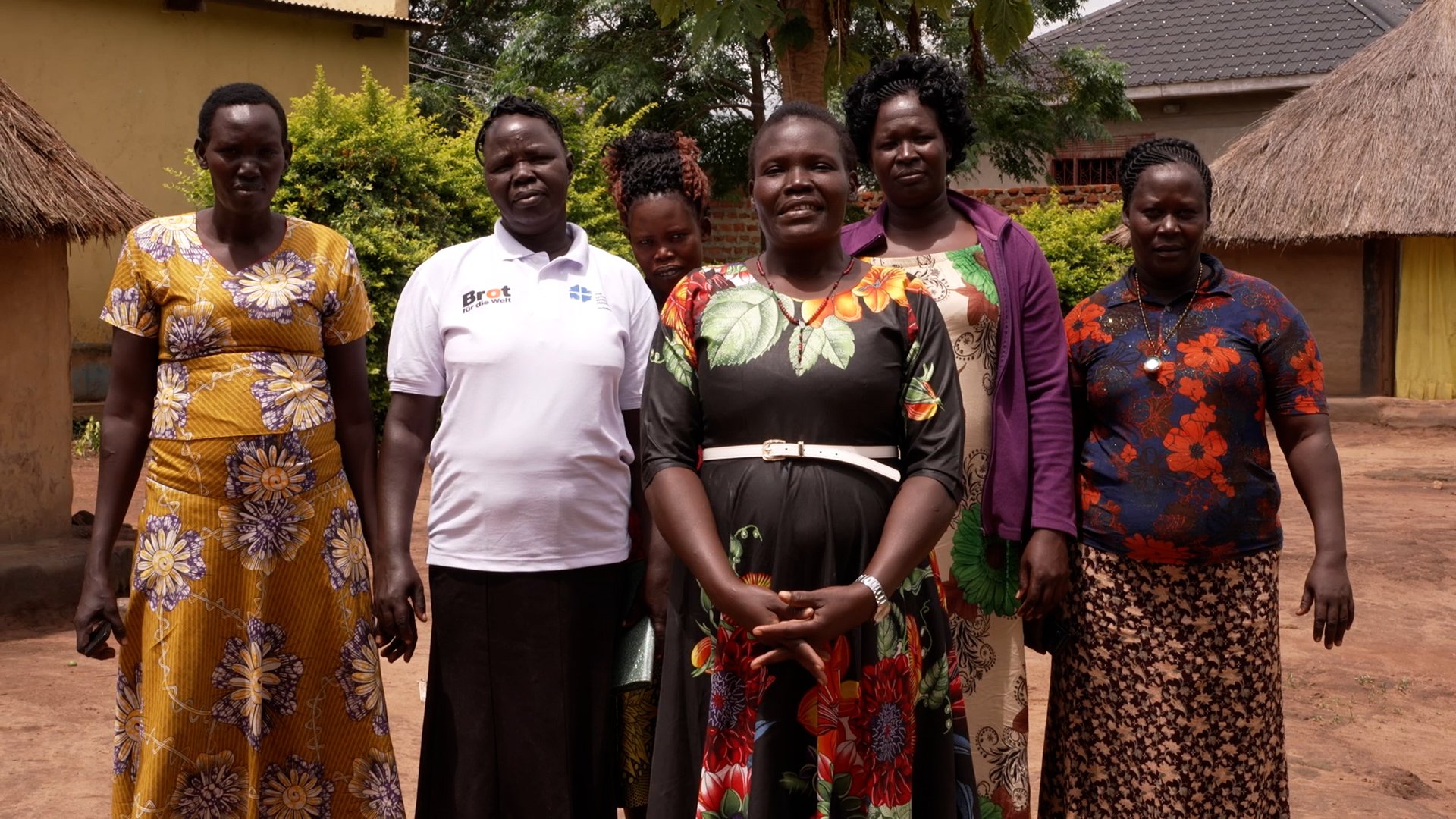Returning Congolese find homes in ruins, livelihoods destroyed
Returning Congolese find homes in ruins, livelihoods destroyed

TCHOMIA, the Democratic Republic of the Congo – Fishing boats line the shore of Lake Albert in the north-eastern Democratic Republic of the Congo. Children play in the shallow water, while adults throng the busy market.
It is hard to believe that the town of Tchomia in Ituri province, from where many boarded overcrowded and rickety fishing boats and canoes and crossed the lake to Uganda, was deserted a few months ago.
Since April, an estimated 150,000 Congolese forced to flee because of ethnic violence have returned to Ituri province. However, dire conditions have greeted them on their return.
Esta, 18, fled her home village of Nizi, in Ituri’s Djugu territory, with her husband and two young children, passing through Tchomia on their way to Kondo in Uganda. They have returned to Tchomia but were not able to move back to Esta’s village.
“We’d like to return to Nizi, but only when peace is fully restored,” she said. “We have no house to go back to, and no means to rent a place either”.
Insecurity persists in some areas and a return will not be easy for the estimated 350,000 Congolese forced to flee their homes since December 2017.
“I used to collect wood, make it into charcoal and sell it,” said Pascaline, 59, who fled the village of Dese in Ituri province with her four grandchildren in February.
"People are getting chopped in pieces”
“But I’d be too scared to go to work in the fields now ... People are getting chopped in pieces.”
She now lives in a displacement site near the hospital in Bunia, the provincial capital of Ituri, where those who remain displaced face huge challenges. “Life is hard here in Bunia. Sometimes we only receive half of the food rations. I get sick a lot, and so do the children.”
For the first time in months, staff from the UNHCR, the UN Refugee Agency, were recently able to visit some of the affected areas to which people are returning.
“Our team heard numerous, harrowing reports of barbaric violence, including armed groups attacking civilians with guns, arrows and machetes, entire villages razed, and farms and shops being looted and damaged beyond repair,” UNHCR spokesperson Charlie Yaxley said in a statement.
They reported that the humanitarian challenges were enormous. Hospitals, schools, and other infrastructure had been destroyed and there was particular concern about the number of children suffering from severe acute malnutrition and in need of urgent medical care.
Betso, 70, also lives in one of the makeshift sites in Bunia with his wife and seven children. Since fleeing Maze in Djugu territory earlier this year, conditions for the family have been difficult.
“There are eight of us squeezed into this little tent,” he said. “We’re sleeping on the floor as we have no mattresses. It gets so cold at night. We don’t know where to put our children, they can only sleep on a piece of wax cloth over here on this side of the tent.
“I’d like us to go back, but to live where? We would literally have no roof over our heads. And to eat what? We cannot access our fields any more. I used to sell oil on the market, but my shop was looted.”
Rith, 22, also fled to Bunia after violence erupted in her hometown of Largu, in Ituri province. She has since returned to Katoto in Djugu territory, but, like many, was not able to return home because her house and livelihood had been destroyed.
“I’m just waiting for the green light to return”
“They burnt our house. They burnt everything. I had a field where I used to grow vegetables. They burnt that too”.
UNHCR is providing emergency shelter to replace houses that have been damaged or destroyed, but lack of funds continues to hamper efforts. It had received just 17 per cent of the US$201 million requested in its humanitarian appeal for the Democratic Republic of the Congo.
“I’m just waiting for the green light to return,” said Pascaline. “They are registering the families interested in returning and we might receive assistance."














